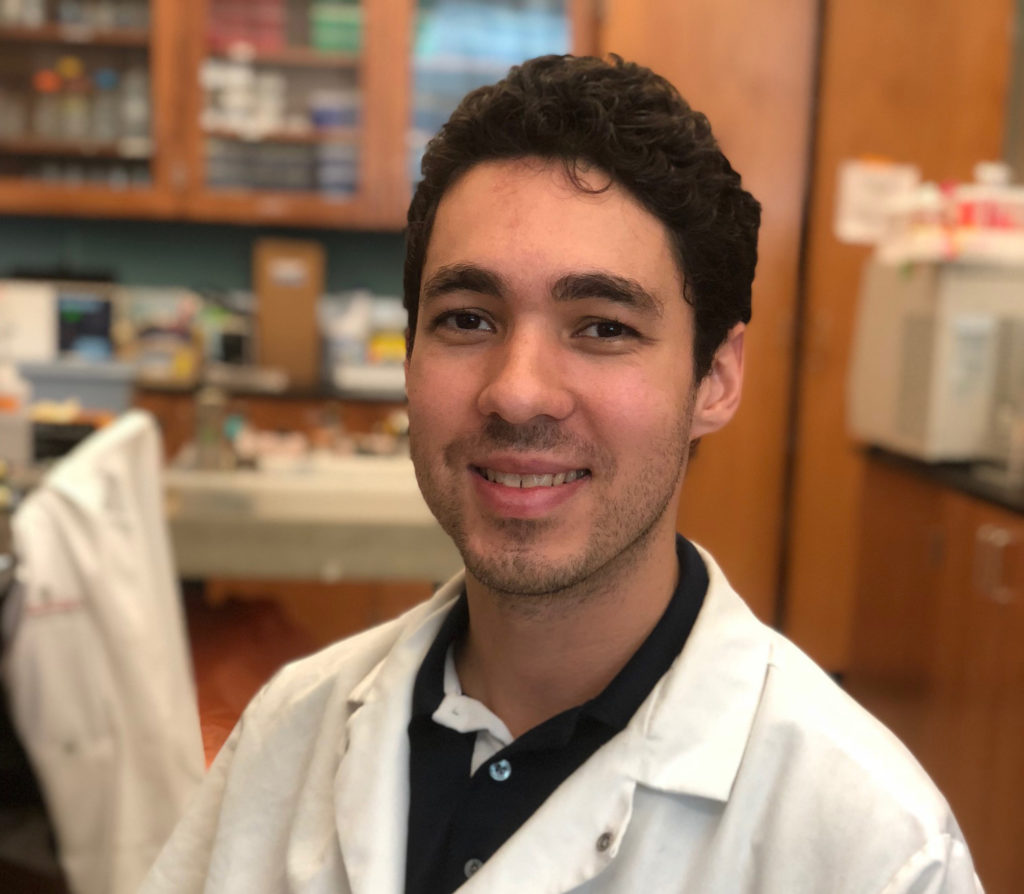Trainee Spotlight: Ciro Cordeiro

Dr. Ciro D. Cordeiro recently completed his Ph.D. training in Roberto Docampo‘s laboratory.
I was born in Brazil and grew up in a small city in the heart of the country, a place of great natural beauty dominated by savannas and agriculture. I have always been fascinated by nature and curious about all forms of life. My interest in science motivated me to enroll in biology as an undergraduate at the University of Brasilia. As I learned the current challenges of modern biology, I became aware of how parasitic diseases are still a prevalent burden in my home country and abroad. After graduating, I enrolled in a master’s program where I studied the parasite that causes Chagas disease, Trypanosoma cruzi, and its vectors, the Triatominae bugs. Then I decided to study the pathogens’ cells at the molecular level, so I enrolled at The University of Georgia.
Why did you choose UGA?
I wanted to learn about parasitic diseases that affect tropical countries and UGA has one of the most complete and competent group of researchers working on tropical and neglected diseases. Here, I knew I would have many options of interesting labs, many of them with world-renowned researchers. Additionally, I wanted to be exposed to this rich research environment to learn about the work being developed in different model organisms.
What is your research focus/project and why are you interested in the topic?
I am studying phosphate and polyphosphate regulation in Trypanosoma brucei. Recently, I worked on the cell signaling pathway named inositol phosphates and looked at how they regulate phosphate homeostasis. Phosphate is essential for all living cells, but there is little information on how parasites’ and other unicellular organisms regulate it. One important molecule for phosphate storage is the ubiquitous polymer named polyphosphate. I believe that understanding phosphate and polyphosphate regulation in eukaryotic parasites may lead to a better understanding of the parasites’ biology. The study of phosphate regulation may also help us understand cellular biology processes of other organisms.
What are your future professional plans?
I intend to continue my training in a top-caliber research institution where I can keep studying the biology of parasites and learn about other cellular biology model organisms. I look forward to participating in interdisciplinary collaborations to address the core challenges related to parasitic diseases, while also serving as a mentor for students.
Have you worked with any collaborators outside of UGA during your training?
I was supported by the EMBO and CTEGD’s Training Innovations in Parasitologic Studies Fellowship to visit the lab of Dr. Adolfo Saiardi at the University College London to perform experiments during my Ph.D. training. We had a productive collaboration that resulted in a successful publication. This great experience enabled me to learn many new techniques that are now routinely used in our lab. Since then, Dr. Saiardi’s lab has published new interesting findings on polyphosphate, which are relevant to many of the current projects of our lab. If possible, I would like to visit Dr. Saiardi’s lab again to continue our collaborative projects.
What is your favorite thing about UGA?
My favorite thing about the experience in UGA was the diverse environment we encounter here. I met people from all continents and learned about their home countries, cultures, and their work. This was an exceptional opportunity to be exposed to new ideas and discover research topics unrelated to my own.
Any advice for a student interested in this field?
I think it is important to carefully choose where you want to study during graduate school. It is imperative to know the program you are enrolling in, when it comes to the research they are performing, the facilities available and whether that aligns with your expectations and ambitions.
Your finiancial donations to CTEGD support the research efforts of students like Ciro Cordeiro. Give today!
